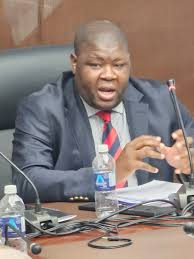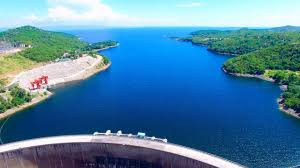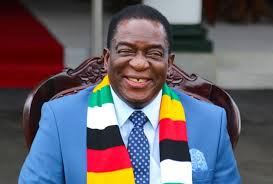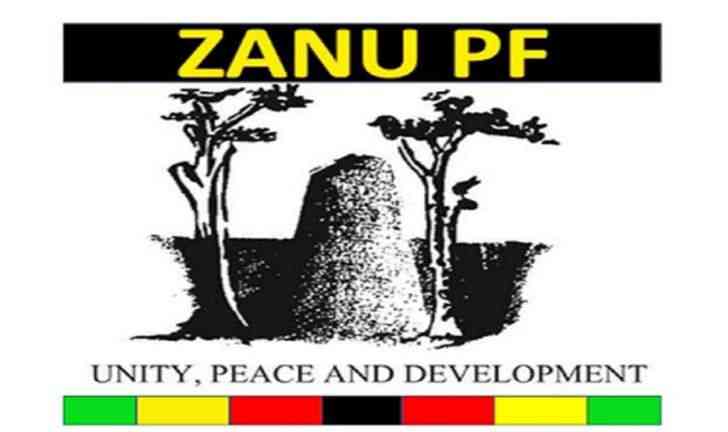THIS serves as a reminder to President Emmerson Mnangagwa and all other public office bearers that you are only left with less than nine months to put your house in order.
Fast forward to 2023, the people of Zimbabwe will decide whether to keep you in office or ship you out.
For your own information, we are not going to give anyone room to rig this coming election either for self or on behalf of someone.
Following my survey, Cde Mnangagwa, your time is over. Getting into this election is suicidal to your 2017 good reputation.
The sons and daughters of the soil will reject you in a very humiliating way.
It will be very difficult to rig or play around with figures after losing by a very huge margin.
Keep Reading
- Chamisa under fire over US$120K donation
- Mavhunga puts DeMbare into Chibuku quarterfinals
- Pension funds bet on Cabora Bassa oilfields
- Councils defy govt fire tender directive
My advice is handing over power to Citizens Coalition for Change leader Nelson Chamisa will be the best option and that will save your integrity.
Cde Mnangagwa, don’t be fooled by a few individuals and some institutions who pretend to be loyal to you, and say to you that you will not go anywhere and that they will stand by you through thick and thin. That is a blue lie.
They will all, in a single day, dump you in a bottomless pit. Those people have their families to take care of and not you Cde Mnangagwa.
For your own information, under normal circumstances, how can those few individuals around you be loyal to you when they cannot access healthcare services at their local clinics, schoolchildren are not learning as they should as the whole education system is almost on its knees, and the economy is on the verge of collapse?
Zimbabweans are no longer respecting you, but are afraid to tell you the truth.
I beg you Mr President to do the honourable thing: step down and free the country from the Pharaoh oppression. –Pardon Makunike
Movements between Zim, SA drop 13%LAST month, 44 380 movements were observed and 2 537 migrants were interviewed across 44 flow monitoring points in Zimbabwe.
This represented a 13% drop in total movements compared to the previous month.
The major drop of flows was witnessed along the Zimbabwe-Zambia corridor on which a drop of 27% on incoming flows was witnessed during the month.
There was also a drop along the Zimbabwe-South Africa corridor, with an 18% drop on inflows and a 12% drop on outflow movements.
Despite a significant drop of movements, the Zimbabwe-South Africa corridor hosted the largest number of movements, with 35 308 (80%) followed by the Zimbabwe-Zambia corridor with 3 916 movements reported (10%).
Fifty-seven percent of the total movements observed were inflows while 43% were outflows.
Of the inflows, 24% reported Harare as their destination district followed by Beitbridge (18%) and Bulawayo (6%).
During the reporting period, 30% of outgoing migrants had departed Beitbridge district, while 13% had departed Masvingo and 11% Harare.
The majority of outflows were through irregular crossing points, while inflows were mostly through formal crossing points
Out of the total migrants observed, 58% were males, while 42% were females.
Seventy percent of these migrants were between the ages of 20 and 49, with the majority (33%) travelling to conduct short- term local economic activities.
The majority of migrants (33%) were travelling to conduct commercial activities.
South Africa has been the preferred destination by those in search of employment due to appealing, socioeconomic conditions there. –International Organisation for Migration
Global trade diversification critical for AfricaTHE global economy is a growing resource that African countries cannot ignore.
African exports substantially increased in the last decade. Nevertheless, the quantities remain low at 3% of global trade.
Policymakers wishing to get more involved in international trade in the 21st century must look beyond old tactics and traditional markets.
More extensive and diversified global trade involvement is critical to achieving Africa’s economic transformation.
African nations must increase and diversify their participation in international commerce and global value chains, to alleviate poverty and improve their economies.
The continent must move beyond raw material trade and connect its trade and production to the global economy.
Consequently, Africa must capitalise on the endless demand and innovation throughout the supply chain.
The change necessitates extensive and creative initiatives to improve Africa’s export market access.
This way, the continent will diversify its markets to new countries and enhance regional commerce.
Unilateral trade patterns can support economic change via exports and necessitate evaluating and re-engineering trade with existing partners.
The trade preferences must integrate with other measures to increase trade and investment between Sub-Saharan African nations, the United States and the European Union.
The integration involves combining preferences with foreign assistance policy tools to address structural issues that impede export capability.
Recent programmes, such as Compact with Africa, resonate with this complete strategy, emphasising improving the business climate, constructing infrastructure, and establishing good rules and institutions.
Deepening regional integration is critical to the continent’s economic change, scaling supply capacity and establishing regional value chains.
The development of the African Continental Free Trade Area provides significant prospects for promoting intra-African trade.
The agreement improves production and export complementarities, generates jobs, and decreases the effect of commodity price volatility on stakeholders. –Exporter
IN response to We’ve excess teachers: Govt, BONGIE MNKANDLA says: In Zimbabwe, we have excess of everything, teachers, nurses, doctors, aeroplanes, fuel, government department vehicles, money, medicine, hospitals, ambulances, elephants, rain, etc. Funny, isn’t it?
TODDY GOBOZA says: Do we have enough schools in Zimbabwe. Government must build schools and employ the excess teachers.
NANETTE ALLMARK says: We also have excess idiots in the corridors of power.
IN response to Wadyajena, accomplices granted $200 000 bail, EVNG TARISAI MUPINGO says: So was he trying to get rid of the exhibits of the proceeds of the money he allegedly stole? Now those cars must be auctioned to recover part of the money! Imagine the bad state of the roads in his constituency yet people continue voting for these thieves. Sometimes you wonder who really bewitched our people.
IN response to Wadyajena, accomplices granted $200 000 bail, GIFT POSASBURG says: I believe it’s a campaigning strategy by Zanu PF to make it look like it is fighting corruption. This Wadyajena scandal will be history in no time.
IN response to Wadyajena-Cottco saga: Court seizes Wadyajena’s fleet of trucks, BOND MAN-G says: This is a catch and release strategy trying to hoodwink us that the Zimbabwe Anti-Corruption Commission is now serious in fighting corruption. Let’s get rid of all these people next year.
IN response to ‘Reopening of CSC feeds into livestock growth strategy’, VINCENT CHERERA SAVE says: This is towards elections, hence the regime will go around opening unproductive companies. Government must invest in cattle rearing first before opening the slaughter houses. Zanu PF can rig the elections, not the economy.
MARTHA MAGWABA says: Vice-President Constantino Chiwenga must be talking about hospitals instead of the Cold Storage Company.
COLLZ MUTAVAYI says: CSC cannot be reopened by just opening the gates. The whole place needs a refit. Many people have no idea about the piping and cooling systems that should be in such infrastructures. It’s all rotten.





